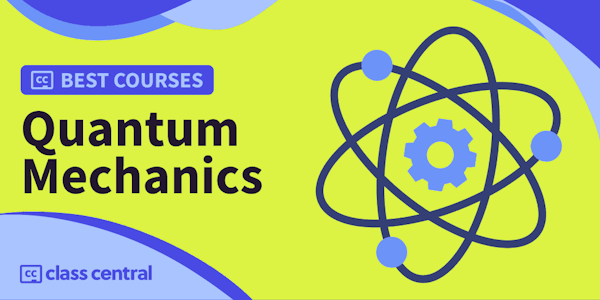ABOUT THE COURSE: Quantum theory (QT) is empirically a very successful theory; there is however an apparent lack of understanding of the theory. This is mostly due to the fact that, unlike the space-time structure, the cut between the ontology and epistemology in QT is difficult to resolve. The two fundamental concepts–the non-local correlations (entanglement) between space-like separated systems and the indistinguishability (non-orthogonality) of quantum states–is widely believed to separate QT from classical theories. In this course we take a foundational approach to QT from the outside: i.e., since classical theories are completely devoid of entanglement, it is compared with various foil theories that are also non-local and indistinguishable in the sense of QT, such that their special nature in the theory can be quantified. The two concepts will be explained in this course through variety of topics it has motivated in the field of quantum information and computation, both in non relativistic settings. In the followup course proposed, we will also discuss the relativisitic approach to foundations of quantum theory.INTENDED AUDIENCE: Msc 1st and 2nd year, PhD studentsPREREQUISITES: BSc in Physics and a good grasp of quantum physics
Foundations of Quantum Theory: Non-Relativistic Approach
Indian Institute of Science Education and Research, Mohali and NPTEL via Swayam
-
42
-
- Write review
Overview
Syllabus
Week 1:The review of the Hilbert-space formulation of quantum mechanics, quantum states, quantum dynamics, and measurements
Week 2:Qubits, block-sphere representation, Pauli algebra, pure versus mixed states
Week 3:Tensor-product, entanglement, purification, quantum operations, LOCC
Week 4:Tensor-product, entanglement, purification, quantum operations, LOCC
Week 5:Unitary versus non-unitary dynamics, decoherence
Week 6:Positive versus completely positive maps, Kraus decomposition
Week 7:EPR paradox, the realism and no-signaling principle, the hidden variable theories
Week 8:The violation of Bell-type inequalities by entangled states (CHSH, Mermin, and Svetlichny inequalities), Nonlocal PR box, simulating quantum correlations, shared randomness, entanglement and computational complexity
Week 9:Discrimination and estimation of unknown quantum states, von Neumann versus POVM measurements, quantum tomography, nature of probabilities in QT
Week 10:Contextuality, Gleason’s theorem, Kochen-Specker theorem, compression of information, Von Neumann entropy, accessible information and Holevo’s theorem
Week 11:Quantum Master equations: microscopic derivation
Week 12:Quantum optical master equation
Week 2:Qubits, block-sphere representation, Pauli algebra, pure versus mixed states
Week 3:Tensor-product, entanglement, purification, quantum operations, LOCC
Week 4:Tensor-product, entanglement, purification, quantum operations, LOCC
Week 5:Unitary versus non-unitary dynamics, decoherence
Week 6:Positive versus completely positive maps, Kraus decomposition
Week 7:EPR paradox, the realism and no-signaling principle, the hidden variable theories
Week 8:The violation of Bell-type inequalities by entangled states (CHSH, Mermin, and Svetlichny inequalities), Nonlocal PR box, simulating quantum correlations, shared randomness, entanglement and computational complexity
Week 9:Discrimination and estimation of unknown quantum states, von Neumann versus POVM measurements, quantum tomography, nature of probabilities in QT
Week 10:Contextuality, Gleason’s theorem, Kochen-Specker theorem, compression of information, Von Neumann entropy, accessible information and Holevo’s theorem
Week 11:Quantum Master equations: microscopic derivation
Week 12:Quantum optical master equation
Taught by
Prof. Sandep K. Goyal



